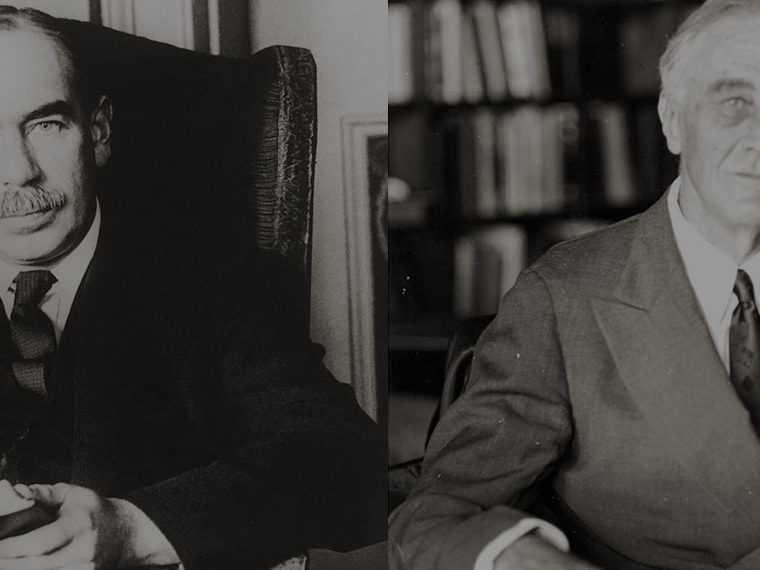The average doctor, following sunshine laws, writes fewer Rx’s for marketed medicines
The pharmaceutical industry spends billions of dollars every year to influence physicians to prescribe drugs. Critics say the payments, which include gifts, meals and other freebies, contribute to the high cost of health care and create conflicts between medical professionals’ ethical and financial interests.
Some medical institutions have tried to rein in direct-to-physician marketing by restricting contact with pharmaceutical sales representatives. A handful of states, along with the 2010 Affordable Care Act, require drug companies to disclose the value of gratuities to physicians. The ACA makes the information available on a public website.
Opt In to the Review Monthly Email Update.
Such “sunshine laws” are widely used to identify conflicts of interest — that’s why political candidates have to name their campaign donors. Public disclosure helps inform the choices of patients (or voters) and, the theory goes, gives physicians, politicians and others the incentive to avoid the appearance of unethical behavior.
Examining the Effects of Sunshine Laws
However, some ethicists believe public disclosure may simply give the recipient of a gift a “moral license” to accept the gifts. Despite public policy moving toward sunshine laws, there is little evidence to answer a key question: When it comes to drug company payments to physicians, are sunshine laws effective?
For the average physician the answer is yes, suggests a paper by Williams College’s Matthew Chao and UCLA Anderson’s Ian Larkin published in Management Science. However, high prescribers appear to be unaffected. In a study of a 2009 physician-payments sunshine law in Massachusetts, Chao and Larkin saw a significant decrease in prescriptions of marketed, brand-name drugs in the two years after the law went into effect. In fact, because there was no comparable increase in prescriptions of generic drugs, the study suggests that physicians in Massachusetts prescribed fewer drugs overall.
This is likely because some of the drug classes in their study not only have generic competition but also over-the-counter remedies (such as antacids and natural sleep aids like melatonin).
That last detail lends support to concerns that drug-company payments to doctors don’t only lead to the prescribing of expensive brand-name drugs instead of lower-cost generics, but to overprescribing in general. “Meals and payments from pharmaceutical companies,” the authors write, “may cause physicians to prescribe marketed drugs to patients they otherwise would not have prescribed anything to.”
Disclosure, however, wasn’t uniformly effective. The decline in prescriptions came mostly from those doctors who accepted less in gifts and payments or abstained from them altogether. Physicians in the study who received the most payments showed no significant change, even though they prescribe a greater-than-average number of marketed drugs. This suggests, the authors write, “that physicians who accepted large amounts of meals post-law are simply unresponsive to disclosure.”
For the study, Chao and Larkin examined 254 drugs in eight drug classes prescribed by more than 2,700 physicians at academic medical centers in Massachusetts. They compared the data for two years before and two years after the sunshine law went into effect with prescribing patterns for nearly 2,600 med-school doctors in four other states. The disclosure law, they estimate, led doctors at the Massachusetts medical schools to write 135,000 fewer prescriptions of marketed drugs, about a 4% decline.
The Limits of Disclosure
In 2017, the pharmaceutical industry provided more than $2 billion in meals, gifts and other payments to U.S. physicians, according the Centers for Medicare and Medicaid Services, which tracks the payments. The Massachusetts findings reinforce previous research by academic researchers and investigative journalists. An earlier study by Chao, Larkin and other researchers found that academic medical centers that had restricted visits from pharmaceutical reps saw a significant drop in prescriptions for marketed drugs and an increase in those for generics.
This research doesn’t indicate that payments cause physicians to prescribe more marketed drugs or that there’s any harm to patients. Those who support the practice say the visits by sales reps — who often come with small gifts or meals for doctors and their staffs — help contribute to patient care by providing up-to-date information on latest treatments, new uses for existing medications and possible side effects. Consulting payments — which include the cost of attending industry-sponsored conferences — also enable doctors and drug companies to exchange information. Research provides some support for this argument: One study found that details about the harmful side effects of a new drug spread more quickly among physicians with industry ties than to those without them.
Chao and Larkin say that their findings challenge the view that gifts and payments simply represent a way to share information about new drugs. Their study indicates that new-to-market drugs — those available for a year or less with no generic alternative — were less affected by the sunshine law than older ones. If the main value of sales calls was informational, a decline in meals and payments would presumably have a bigger effect on newer drugs, since physicians would be less familiar with their benefits and special characteristics.
So are physician-payment sunshine laws effective? Chao and Larkin conclude that a nationwide policy, such as the one in the ACA, can help reduce potential conflicts of interest, but the benefits may be limited. Like the Massachusetts law, a nationwide disclosure requirement may not be enough to deter some physicians from accepting payments or to change their prescribing behavior.
“That [these physicians] were immune to disclosure,” the authors write, “suggests more heavy-handed measures, such as outright bans, may be necessary if policymakers aim to completely eliminate these conflicts of interest.”
Featured Faculty
-
Ian Larkin
Associate Professor of Strategy
About the Research
Chao, M. and Larkin, I. (2022). Regulating Conflicts of Interest in Medicine Through Public Disclosure: Evidence from a Physician Payments Sunshine Law. Management Science, 68(2), 1078-1094. https://doi.org/10.1287/mnsc.2020.3940
Larkin I., Ang D., Steinhart J., Chao M., Patterson M., Sah S., Wu T., Schoenbaum M., Hutchins D., Brennan T., & Loewenstein G. (2017). Association Between Academic Medical Center Pharmaceutical Detailing Policies and Physician Prescribing. JAMA,317(17):1785-1795. doi:10.1001/jama.2017.4039






